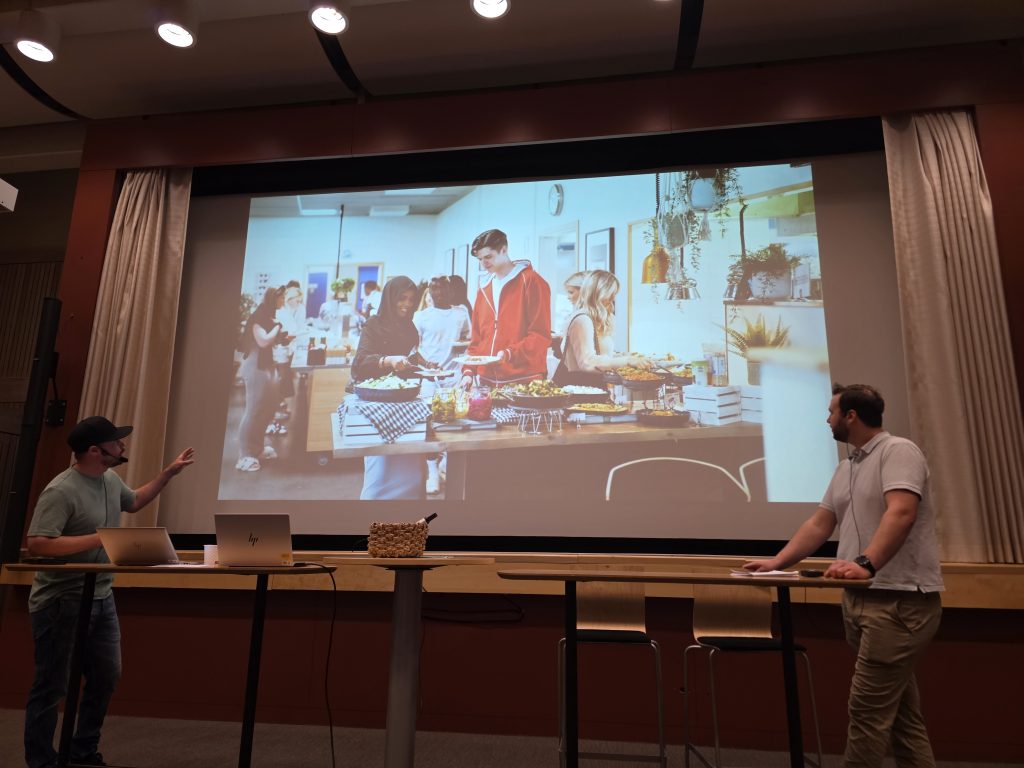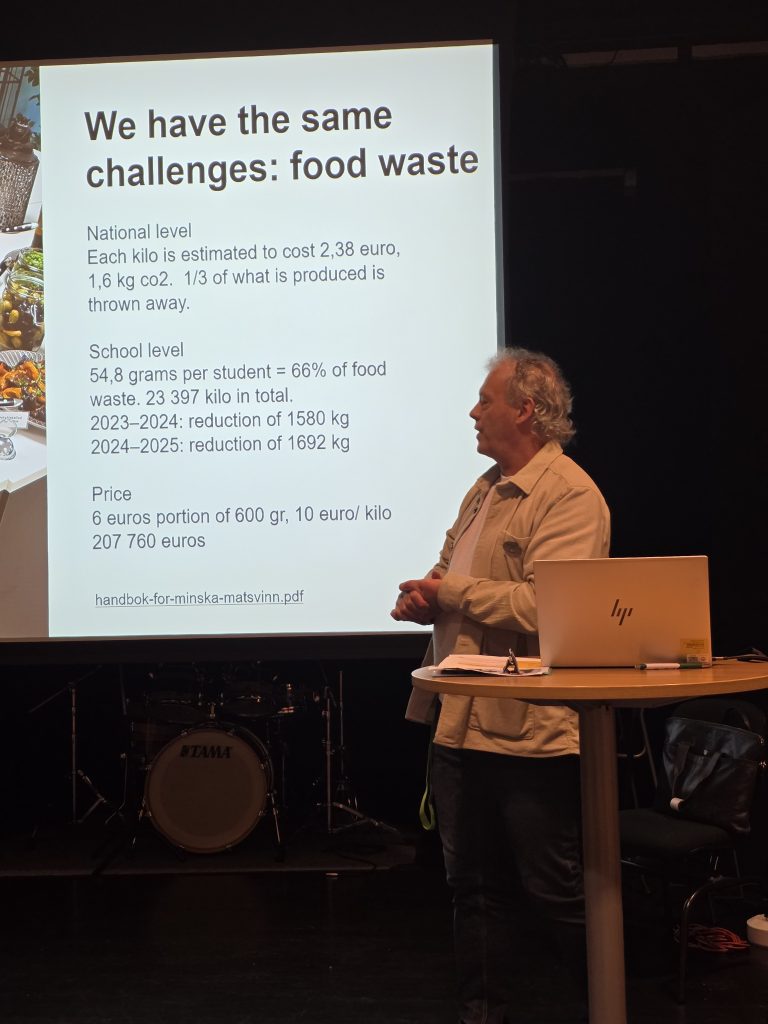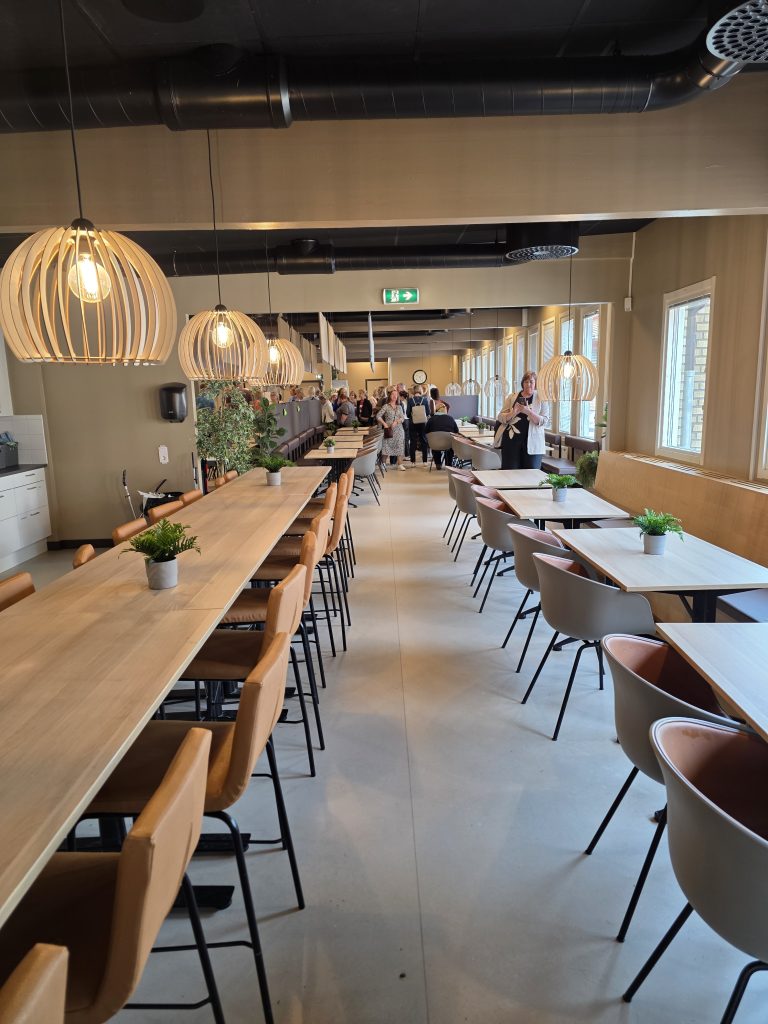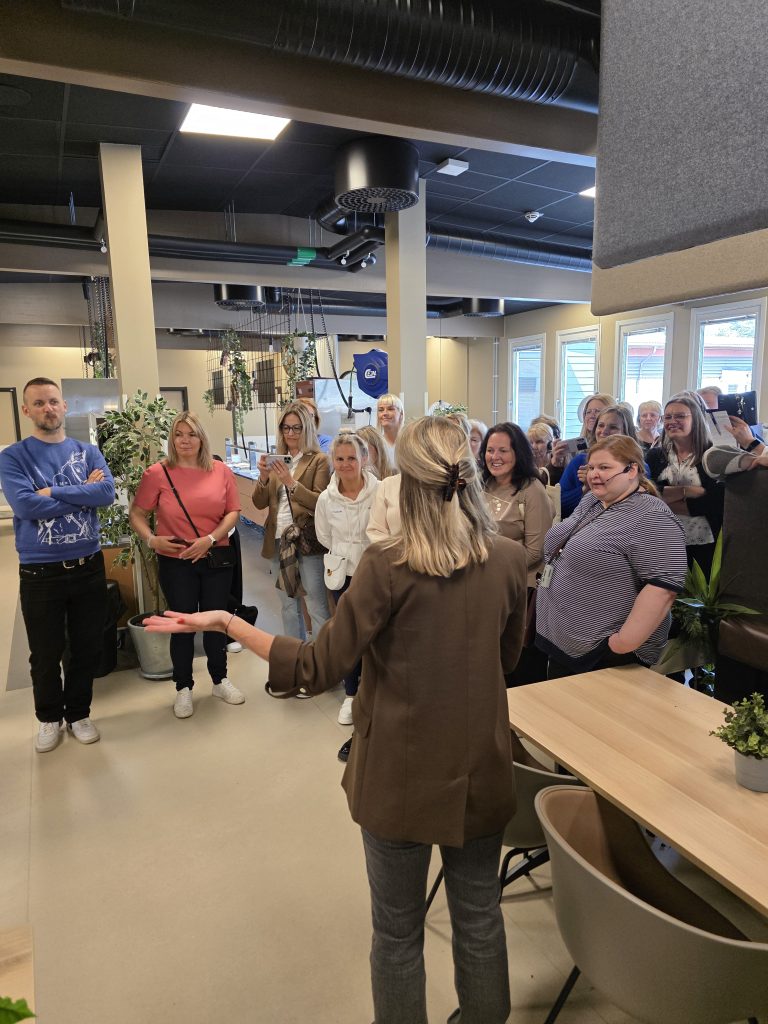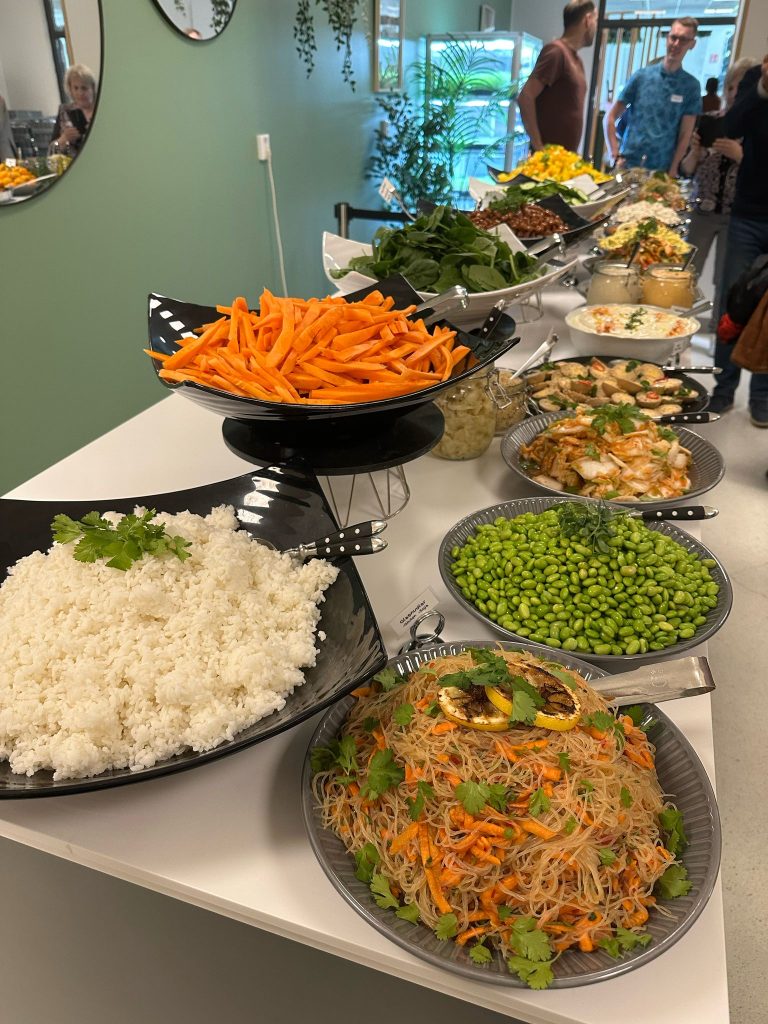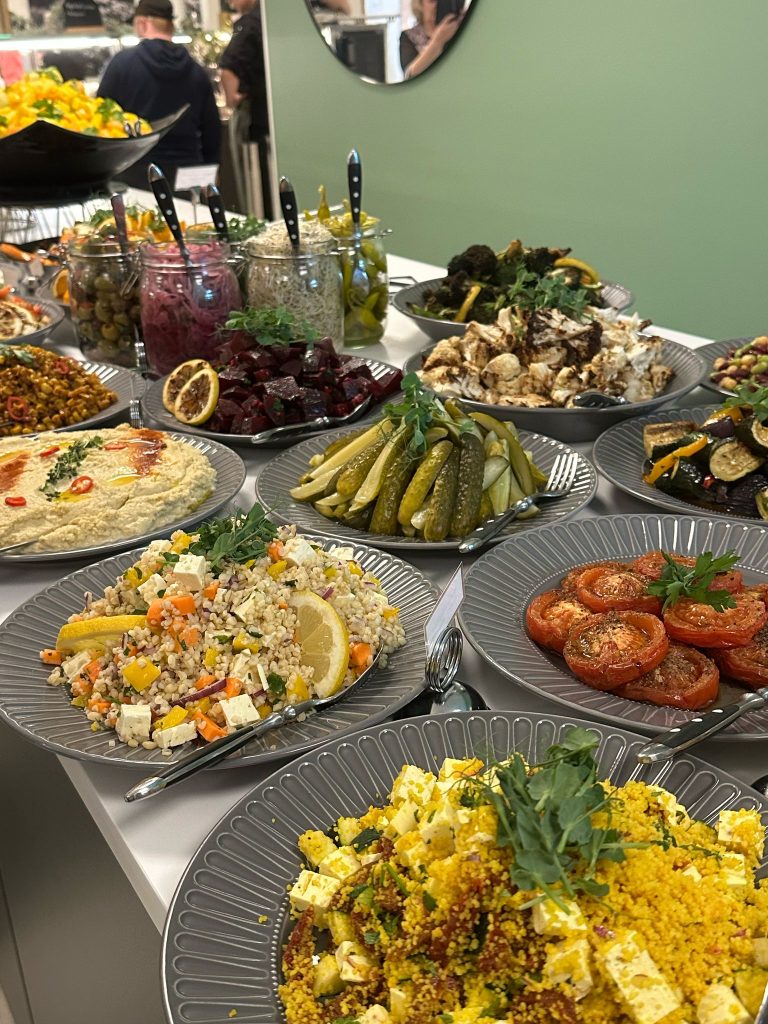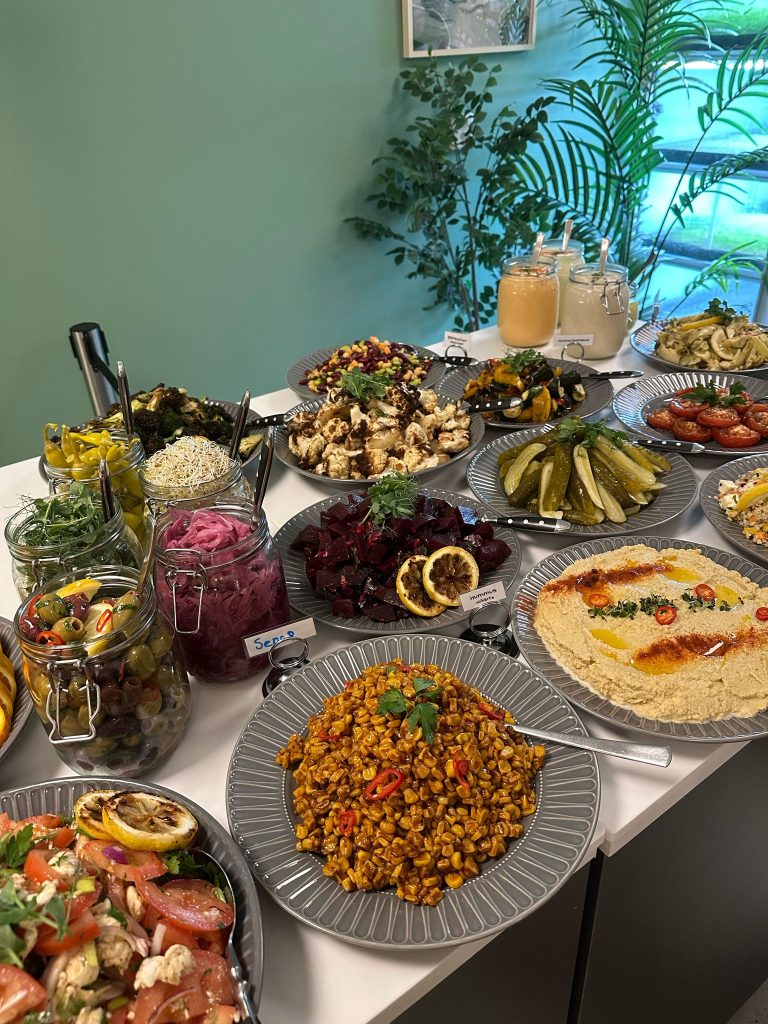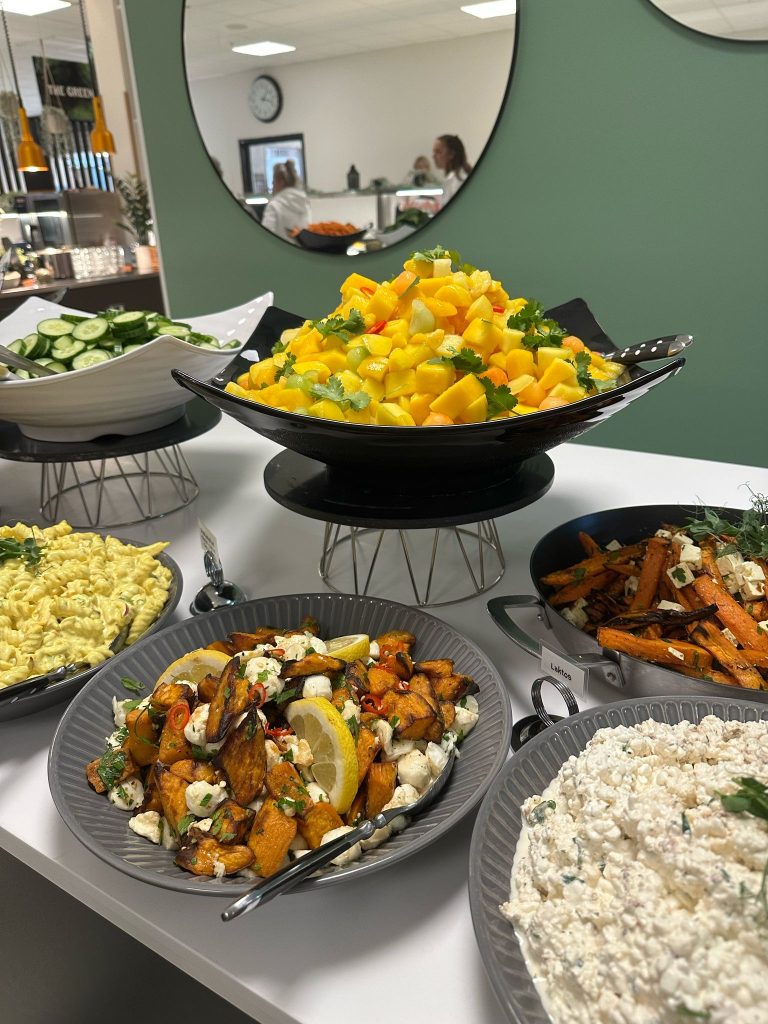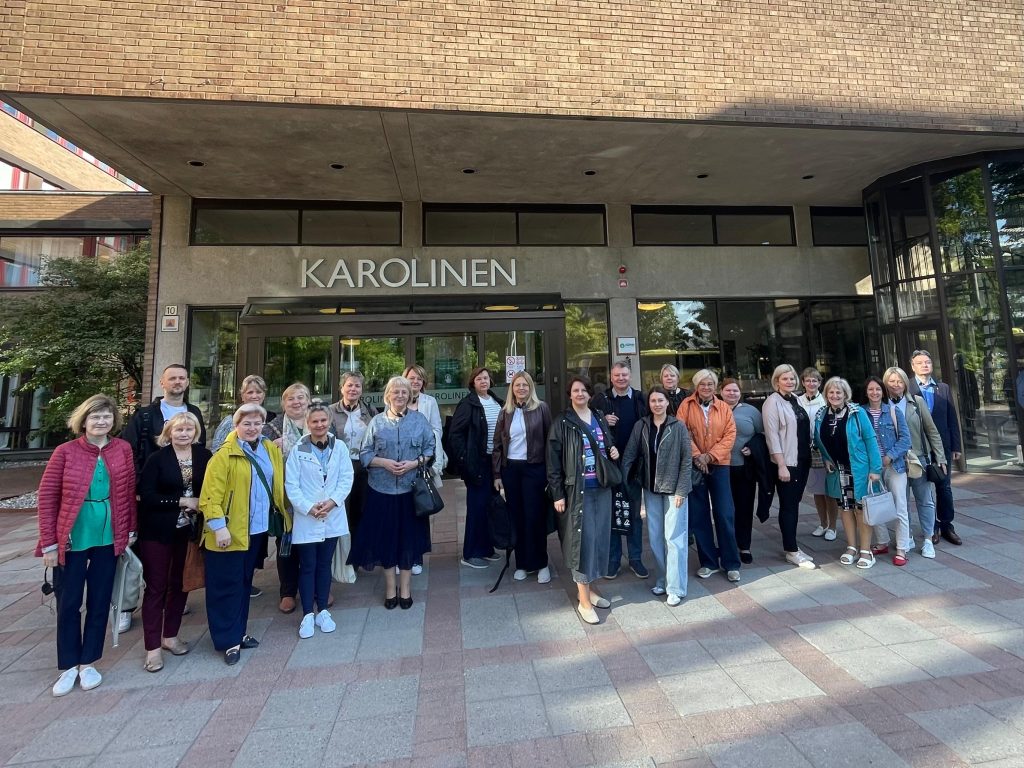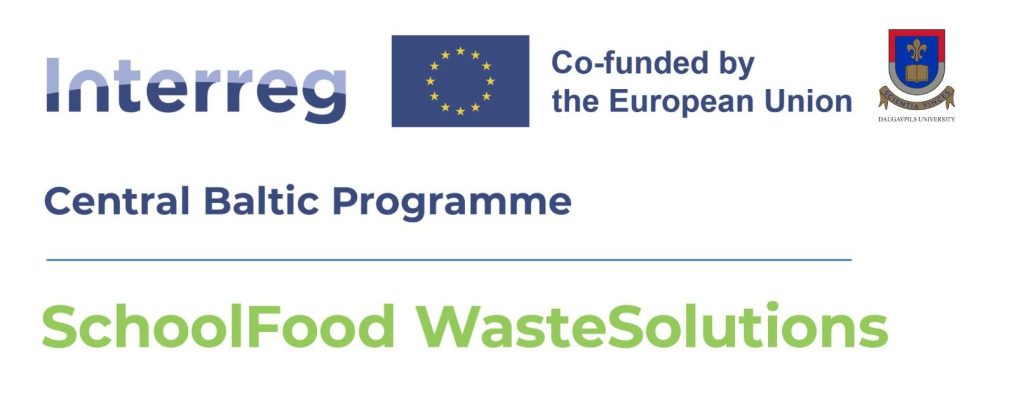
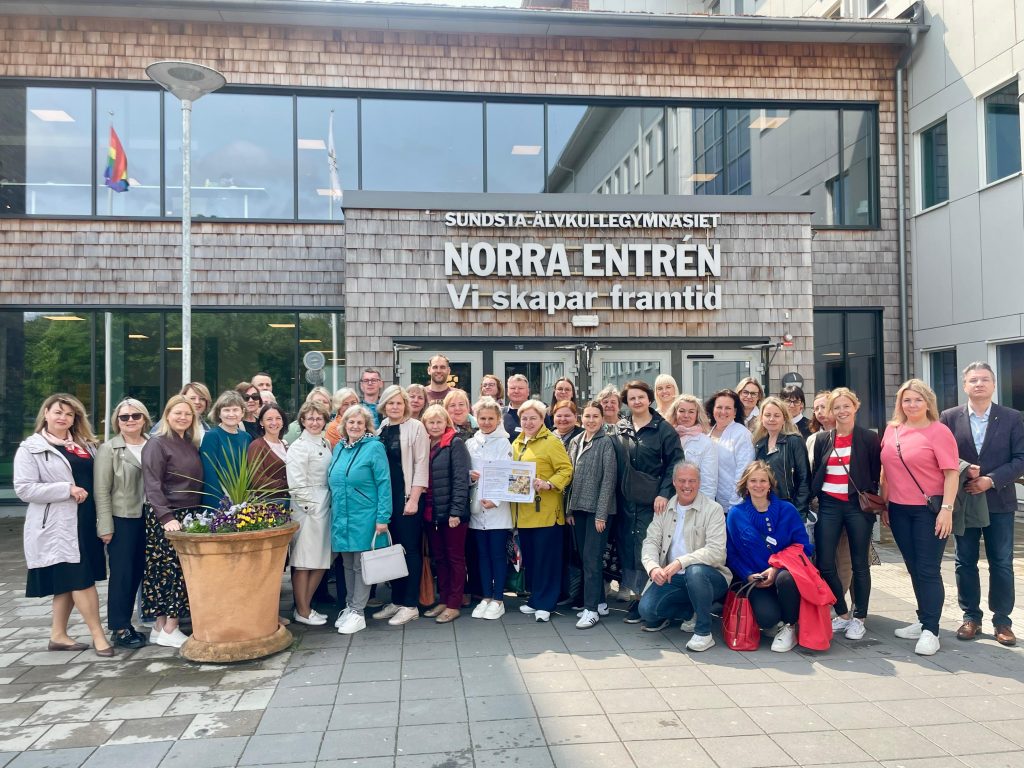
As part of the Interreg Central Baltic programme 2021–2027 project “Solutions for Reducing Food Waste in School Canteens” (acronym – SchoolFoodWasteSolutions), representatives of local governments in Latgale and Tartu regions, project partners, went on an experience exchange trip to Karlstad, Sweden, from June 2 to June 5, 2025, to learn about successful approaches to school catering and reducing food waste.
During the visit, they learned about the school catering model and best practices in the municipality of Karlstad, visited several school canteens where buffet-style catering is successfully implemented and where a varied, healthy and tasty meals that provide energy and promote children’s understanding of the importance of food and its value are served. Participants visited local food producers, farmers, and wholesalers who supply local products to schools in the region, that gave them an insight into the region’s food cycle.
During the visit, thy also gained insight into Sweden’s food procurement system, which emphasizes the purchase of local products for school canteens. The Swedish school meal and food waste guidelines were reviewed, and the challenges of food waste at the national and global levels were discussed.
By using and integrating innovative methods in school canteens, students are encouraged to participate in reducing food waste, which, in turn, promotes awareness of the importance of sustainable food in a way that advances students’ interest.
School canteens systematically weigh food leftovers, which allows for accurate recording and analysis of consumption in order to draw conclusions and make improvements. The information is also made available to students, thereby raising their awareness.
Considerable thought is also given to creating an environment and atmosphere that is comfortable for students and encourages eating, with room zoning, integrated sound insulation solutions, thoughtful colour and material combinations, and equipment selection. Food presentation and decoration are also included in the creation of the environment.
A great deal of emphasis is placed on educating students and staff and promoting awareness through joint participation!
Based on the experience gained and what was seen during the visit, it can be concluded that the Karlstadt municipality’s school catering model, based on a thoughtfully and carefully designed system, mutual cooperation, integration of innovative methods, and awareness raising, promotes the development of sustainable catering and serves as a successful example to change it in Latgale and Tartu regions.
This project is co-financed by the European Union. The Interreg Central Baltic Programme 2021-2027 aims to promote cross-border cooperation to address common challenges and create a more sustainable, innovative, and inclusive Central Baltic region. Programme website: https://centralbaltic.eu/. Official EU website: www.europa.eu.
Contact information:
Rita Ivanova
Daugavpils University
Senior project manager
E-mail: rita.ivanova@du.lv
Phone No. 29857838
This article has been prepared with the financial support of the European Union. Daugavpils University is solely responsible for the content of this article, and it cannot be considered to reflect the official views of the European Union under any circumstances.
